✨✨✨✨ Taylor | 23 | Michigan ✨✨✨✨ I enjoy washi tape, learning, and all stationery! I'll be focusing on my language studies here! I'm focusing on Japanese mainly, but you may see drabbles of Korean, Chinese, and Spanish as well. This is a side blog.
Don't wanna be here? Send us removal request.
Text
Rainy day vocabulary in Japanese
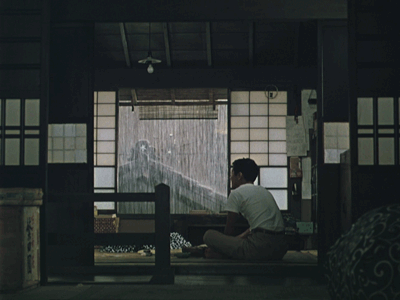
Based on my rainy day vocabulary list in Finnish. 雨 [あめ] - rain 雨が降る [あめがふる] - to rain 雨の日 [あめのひ] - rainy day 雨天 [うてん] - rainy weather 梅雨 [つゆ] - rainy season 台風 [たいふう] - typhoon 雨林 [うりん] - rain forest 濡れる [ぬれる] - to get wet 湿る [しめる] - to be wet, to be damp, to be moist 大雨 [おおあめ] - heavy rain 小雨 [こさめ] - light rain 土砂降り [どしゃぶり] - pouring rain 霧雨 [きりさめ] - drizzle 夕立 [ゆうだち] - evening shower 嵐 [あらし] - storm 雷雨 [らいう] - thunder storm 稲妻 [いなずま] - lightning 風 [かぜ] - wind 雲 [くも] - cloud 水 [みず] - water 滴 [しずく] - drop 水たまり [みずたまり] - puddle 滑り易い [すべりやすい] - slippery 涼しい [すずしい] - chilly 灰色 [はいいろ] - grey レインコート - rain coat 傘 [かさ] - umbrella 長靴 [ながぐつ] - rain boots 雨宿り [あまやどり] - taking shelter from rain 雨乞い [あまごい] - rain dance 虹 [にじ] - rainbow 露 [つゆ] - dew
2K notes
·
View notes
Text

肉球 🐾 (にく·きゅう)
Toe beans 🐾
Mnemonic:
肉(にく): meat
球(きゅう): ball
They’re balls of meat under a cat’s paw
#studyblr#langblr#japanese study#learning japanese#japanese language#japanese grammar#japanese#japan
31 notes
·
View notes
Photo

The difference between へ and に. NOW I get it.
From 外国人の大疑問, a book you all should totally buy and read now. It’s by this manga artist (the girl in the bun in the lower left corner) who hangs out at a cafe where a lot of foreigners go too. And sometimes she gets weird questions about Japan and Japanese, and she usually isn’t able to answer them. But this one salaryman always knows the answers.
Here’s a related page of questions the author got from foreigners about Japan, and text responses. A few of them are kind of interesting. The reason my washer doesn’t do hot water is apparently because, since most water in Japan is soft water, cold water will do the trick.
274 notes
·
View notes
Text
🌏 Cities of the world in 🇰🇷Korean and Japanese🇯🇵
서울 ソウル Seoul
베른 ベルン Bern 방콕 バンコク Bangkok 델리 デリー Delhi 카불 カーブル Kabul 리마 リマ Lima 런던 ロンドン London 파리 パリ Paris 로마 ローマ Rome
앙카라 アンカラ Ankara 아테네 アテネ Athens 베를린 ベルリン Berlin 브뤼셀 ブリュッセル Brussels 카이로 カイロ Cairo 캔버라 キャンベラ Canberra 두바이 ドバイ Dubai 더블린 ダブリン Dublin 헬싱키 ヘルシンキ Helsinki 키에프 キエフ Kiev 킨샤사 キンシャサ Kinshasa 리스본 リスボン Lisbon 마닐라 マニラ Manila 멜버른 メルボルン Melbourne 밀라노 ミラノ Milan 민스크 ミンスク Minsk 오슬로 オスロ Oslo 오타와 オタワ Ottawa 프라하 プラハ Prague 리야드 リヤド Riyadh 시드니 シドニー Sydney 테헤란 テヘラン Tehran 토론토 トロント Toronto 튀니스 チュニス Tunis 비엔나 ウィーン Vienne 워싱턴 ワシントン Washington
바그다드 バグダード Baghdad 벨그라드 ベオグラード Belgrade 브라자빌 ブラザヴィル Brazzaville 코펜하겐 コペンハーゲン Copenhagen 예루살렘 エルサレム Jerusalem 이스탄불 イスタンブール Istanbul 자카르타 ジャカルタ Jakarta 마드리드 マドリード Madrid 모스크바 モスクワ Moscow 상파울루 サンパウロ São Paulo 스톡홀름 ストックホルム Stockholm 텔아비브 テルアビブ Tel Aviv 바르샤바 ワルシャワ Warsaw
암스테르담 アムステルダム Amsterdam 바르셀로나 バルセロナ Barcelona 부카레스트 ブカレスト Bucharest 부다페스트 ブタペスト Budapest 다마스커스 ダマスカス Damascus
브라티슬라바 ブラチスラヴァ Bratislava 아디스 아바바 アディスアベバ Addis Ababa 리우데자네이루 リオデジャネイロ Rio de Janeiro 부에노스아이레스 ブエノスアイレス Buenos Aires
66 notes
·
View notes
Note
I'm at a N5 level and I'm wanting to find youtubers the speak natural Japanese. The only Japanese youtubers I know are mimei and The Japanese Man Yuta. Do you know any channels that are Reaction/Interview/A laid back video? A lot of my english ytbers don't scream/swear(constantly)/etc. If you can help, thank you.
バイリンガール英会話 – lifestlye & travel
Chiaki – makeup, fashion & lifestyle (lives in the uk)
こんどうようぢ – makeup, lifestyle & lgbt+
Ami Morita – makeup, lifestyle & fashion
LIFE OF MIYU – lifestyle & fashion
和田さん。チャンネル – makeup & fashion
藤子さき – makeup & lifestyle
たかねんわーるど – lifestyle
日本語の森 – Japanese language information
三本塾 – Japanese language & culture information
禁断ボーイズ – fun & games
すしらーめん – fun & games
はじめしゃちょー – fun & games
東海オンエア – fun & games
さんこいち – fun & games
hatomugi ASMR – ASMR
華凛 – ASMR
Latte ASMR – ASMR (Japanese, English & Korean)
Sorry this took so long! I have quite a long YouTube subscription list and I wanted to make sure I organized it a little bit too. A few of these YouTubers are from Kansai (like 禁断ボーイズ) so their Japanese may be more difficult or not sound as refined as the other YouTubers, but I recommend all of them 😊
2K notes
·
View notes
Text
Adjectives with Dupicate Kanji Followed by しい
So, this post idea basically boils down to my being interested in the adjectives that use the same kanji twice or phrase twice in a row following my discovery of 馬鹿馬鹿しい. Here are the ones I found which seemed most practical.
馴々しい (or 馴れ馴れしい, なれなれしい) overfamiliar
馬鹿馬鹿しい (ばかばかしい) ludicrous
若々しい (わかわかしい) youthful
生々しい (なまなましい) lively, green, fresh
騒々しい (そうぞうしい) noisy, boisterous
弱々しい (よわよわしい) frail, slender, feeble
図々しい (ずうずうしい) shameless
荒々しい (あらあらしい) rough, gruff
痛々しい (いたいたしい) painful (to look @, i.e.: a painful to look at injury)
初々しい (ういういしい) innocent/ artless
辿々しい (たどたどしい) faltering, tottering
疎々しい (うとうとしい) unfriendly, cold, distant
刺々しい (とげけとげしい) sharp, harsh (tone)
毳々しい (けばけばしい) gaudy, garish
艶々しい (つやつやしい) glossy
仰々しい (ぎょうぎょうしい) exaggerated
瑞々しい or 水々しい (みずみずしい) juicy
雄々しい (おおしい) manly, brave, heroic
空々しい (そらぞらしい) aloof, hypocritical
毒々しい (どくどくしい) (1) poisonous, venomous, poisonous-looking; (2) detestable, loathsome; (3) gaudy, garish, heavy
清々しい (すがすがしい) refreshing (feeling, scene, wind, air, etc.), brisk
忌々しい (いまいましい) annoying, provoking
重々しい (おもおもしい) grave, dignified, solemn
苦々しい (にがにがしい) bitter, loathsome, shameful
軽々しい (かるがるしい) indiscreet, thoughtless, careless
Thanks for reading!
#studyblr#langblr#japanese study#learning japanese#japanese language#japanese grammar#japanese#japan#neat!#ref
1K notes
·
View notes
Text
Should you learn kanji ?
If you are a beginner in Japanese, you may be wondering “Should I learn kanji ? Is it necessary ?”
Let’s face it: they’re complex and there are a lot! BUT you will soon realize how convenient they actually are. Once you know hiragana, I dare you to take a kids book and try to read a few pages full of hiragana with no kanji whatsoever. That is a nightmare.
If kanji were useless, I doubt Japanese people would keep using them… It turns out that when I read, I find that kanji allow me to do two things.
1) You will be able to kind of know what you’re reading is about, because each kanji holds a few ideas. Let’s take an example.
When I see : きのう、なにをたべましたか。 I have to first read all the syllables and then understand what the sentence means. Now, If I see this: 昨日、何を食べましたか。 I instantly regonize 3 kanji and I can tell that the sentence is about : yesterday (昨日), what (何) and eating (食). Of course this is a very basic example, but imagine having to read each syllable when you’re reading a book, an article or even a message!
2) What you’re reading becomes clearer. Of course you may not know all the vocabulary and the grammar, but having kanji makes everything better for the eyes. Again, if you were to read a page full of hiragana and no kanji, without knowing all the vocabulary and the grammar, it would be extremely hard to visually pick out the verbs, nouns and particles . When you’ll find yourself reading long sentences, kanji will become almost necessary. Let’s have another example with a longer sentence : にんげんかいのちについたじてんでノートはにんげんのものになる。もうおまえのものだ。いらきゃほかのにんげんにまわせ、そのときはおまえのデスノートにかんするきおくだけけさせてもらう。
And compare with: 人間界の地に着いた時点でノートは人間界の物になる。もうおまえの物だ。いらきゃ他の人間に回せ、その時は おまえのデスノートに関する記憶だけ消させてもらう。
If you’re a beginner this should be a pretty complex sentence. However, with the kanji, you know what words to look up in your dictionary…
So when should you start learning them ?
This is based on my personal experience with learning Japanese and kanji. There is nothing scientific about what you are about to read, only my advice based on my own journey.
1) Use a textbook that uses kanji with furigana, that way you will become familiar with them, and you will even be able to recognize them.
2) Don’t rush into learning kanji! Even though Japanese kids start learning them at a yound age, keep it mind that they already know the language ! So don’t overwhelm your brain with that many new information.
3) You should start studying kanji once you know perfectly all the kana and once you know all the N5 grammar extremely well. The reason is, I think you need to be familiar with how the language works which you will be once you know at least the basics of it. Remember, processing new information takes time, don’t rush it. A year is good if you are learning Japanese as a hobby. But if all you’re going to do is study Japanese everyday intensively you might want to try studying kanji earlier.
OK! You are now familiar with Japanese. You are starting to understand how it works and you are way past the difficulties of learning to write/read kana !! What next ?
4) This is optional, but I advise you to look up how writing kanji works (order of strokes). You’ll probably understand the rules by yourself as you learn kanji, but that’s something that’s truly helped me :-)
5) Where should you start ? I think we need a kind of structure. If your aim is to pass the JLPT tests, you should probably use the lists of kanji you need for each level. As far as I’m concerned, I don’t intend (at least right now) to take these tests, so I chose to learn them according to the lists of kanji kids learn each year at school.
6) Find a website, an app or a book with the lists of kanji you want to study. I personally enjoy using the app “JA sensei”.
7) But wait! Each kanji has several meanings and readings, what should you learn first? Again, this is from my personal experience, but I have found that trying to learn all the readings is not very helpful. When learning a new set of kanji, I start by remembering their meaning. Since by that time you will already be familiar with the language, you will recognize some kanji used in your textbook(s) and you’ll realize there are kanji you already know (meanings and readings). Then, I learn how to write them. I do this on my app, which is very helpful since it will tell me when I’m wrong (it can be hard to know yourself if your stroke order is wrong). That app uses SRS, so I will check everyday what I need to review.
8) And then… what ? I do not believe it to be essential to force yourself to remember all the readings of each kanji. So when you’re reading, you will be able to spot the kanji you already know and associate them with the new words (and of course how they’re read). That way, you can learn new kanji quicker than if you were to learn their readings.
#kanji#japanese study#learning japanese#japanese language#japanese grammar#japanese#japan#language stuff#language#langblr
1K notes
·
View notes
Text

Duolingo Vocabulary: Classroom
辞書 ( じしょ ) dictionary
教科書 ( きょうかしょ ) textbook
鉛筆 ( えんぴつ ) pencil
色鉛筆 ( いろえんぴつ ) colored pencil
引く ( ひく ) to consult, to look up
言葉 ( ことば ) word
漢字 ( かんじ ) kanji
意味 ( いみ ) meaning
質問 ( しつもん ) question
覚える ( おぼえる ) to remember
答える ( こたえる ) to answer
持つ ( もつ ) to have, to possess, to carry
知る ( しる ) to know, to learn
書く ( かく) to write, to draw
言う ( いう ) to say
同じ ( おなじ ) same
授業 ( じゅぎょう ) lesson
宿題 ( しゅくだい ) homework
教室 ( きょうしつ ) classroom
簡単 ( かんたん ) easy
難しい ( むずかしい ) difficult
定規 ( じょうぎ ) ruler
テスト test
クラス class
ペン pen
Sentences
この言葉の意味は何ですか? このことばのいみはなにですか? What does this word mean?
辞書を引きます。じしょをひきます。 I will consult a dictionary.
テストでは辞書を引いてはいけません。 テストではじしょをひいてはいけません。You are not allowed to use a dictionary during the test.
難しい漢字は辞書を引いてください。むずかしいかんじはじしょをひいてください。 Please look up difficult kanji in your dictionary.
その言葉はすぐに辞書で引きました。 そのことばはすぐにじしょでひきました。I looked up that word in the dictionary right away.
それは今知りました。 それはいましりました。I learned it just now.
彼女ははいと言いました。 かのじょははいといいました。She said yes.
あなたの名前を言ってください。 あなたのなまえをいってください。Please say your name.
その言葉は知りません。そのことばはしりません。I do not know that word.
だれが同じクラスですか? だれがおなじクラスですか? Who is in the same class?
今日のテストは簡単でした。きょうのテストは かんたんでした。 Today’s test was easy.
もう質問に答えました? もうしつもんにこたえました? Did you already answer the question?
赤い色鉛筆と青い色鉛筆を持っています。 あかいいろえんぴつとあおいいろえんぴつをもっています。 I have a red colored pencil and a blue colored pencil.
色鉛筆で絵を書きます。 いろえんぴつでえをかきます。 I drew a picture with colored pencils.
688 notes
·
View notes
Photo
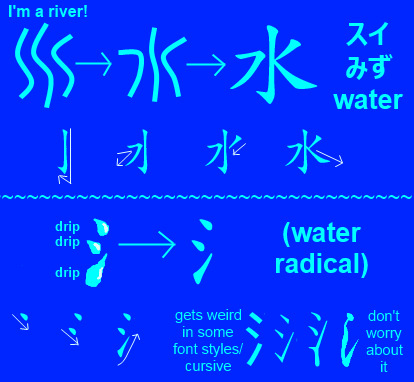
Kanji: 水 and the water radical 氵
水 is the kanji for water, based on a drawing of flowing water. It’s pronounced すい (sui) in compounds borrowed from Chinese and みず (mizu) in native Japanese words, and it’s found in words about water:
水(みず) water, especially cool/cold water (hot/boiling water has its own word, 湯, pronounced ゆ/yu)
水泳(すいえい) swimming (泳 swim)
汚水(おすい) sewage (汚 dirty)
塩水(しおみず) salt water (塩 salt)
水色(みずいろ) light blue (“water-colored”: 色 color)
水 is also a radical in a few other kanji about water. You’ll usually see it on the bottom of the kanji.
…But you can also crush it down to three dots/drops 氵and write it on the left side of a kanji. This is the most common “water” radical, and one of the most common radicals period. Kanji with the water radical usually have something to do with water (or liquids in general).

674 notes
·
View notes
Text

Duolingo Vocabulary: Classroom
辞書 ( じしょ ) dictionary
教科書 ( きょうかしょ ) textbook
鉛筆 ( えんぴつ ) pencil
色鉛筆 ( いろえんぴつ ) colored pencil
引く ( ひく ) to consult, to look up
言葉 ( ことば ) word
漢字 ( かんじ ) kanji
意味 ( いみ ) meaning
質問 ( しつもん ) question
覚える ( おぼえる ) to remember
答える ( こたえる ) to answer
持つ ( もつ ) to have, to possess, to carry
知る ( しる ) to know, to learn
書く ( かく) to write, to draw
言う ( いう ) to say
同じ ( おなじ ) same
授業 ( じゅぎょう ) lesson
宿題 ( しゅくだい ) homework
教室 ( きょうしつ ) classroom
簡単 ( かんたん ) easy
難しい ( むずかしい ) difficult
定規 ( じょうぎ ) ruler
テスト test
クラス class
ペン pen
Sentences
この言葉の意味は何ですか? このことばのいみはなにですか? What does this word mean?
辞書を引きます。じしょをひきます。 I will consult a dictionary.
テストでは辞書を引いてはいけません。 テストではじしょをひいてはいけません。You are not allowed to use a dictionary during the test.
難しい漢字は辞書を引いてください。むずかしいかんじはじしょをひいてください。 Please look up difficult kanji in your dictionary.
その言葉はすぐに辞書で引きました。 そのことばはすぐにじしょでひきました。I looked up that word in the dictionary right away.
それは今知りました。 それはいましりました。I learned it just now.
彼女ははいと言いました。 かのじょははいといいました。She said yes.
あなたの名前を言ってください。 あなたのなまえをいってください。Please say your name.
その言葉は知りません。そのことばはしりません。I do not know that word.
だれが同じクラスですか? だれがおなじクラスですか? Who is in the same class?
今日のテストは簡単でした。きょうのテストは かんたんでした。 Today’s test was easy.
もう質問に答えました? もうしつもんにこたえました? Did you already answer the question?
赤い色鉛筆と青い色鉛筆を持っています。 あかいいろえんぴつとあおいいろえんぴつをもっています。 I have a red colored pencil and a blue colored pencil.
色鉛筆で絵を書きます。 いろえんぴつでえをかきます。 I drew a picture with colored pencils.
688 notes
·
View notes
Text

Easy reading practice:
秋のコーディネートはこれでばっちりだね♪
---
秋 (あき) → autumn, fall
コ一ディネ一ト → coordinate, coordination
ばっちり → perfect
---
Very commonly on SNS you’ll see japanese people tagging their daily outfits as #コ一ディネ一ト or #コ一デ.
In this post Purin is talking about his new fall style! How cute!
214 notes
·
View notes
Text
Tips to learn a new language
The 75 most common words make up 40% of occurrences The 200 most common words make up 50% of occurrences The 524 most common words make up 60% of occurrences The 1257 most common words make up 70% of occurrences The 2925 most common words make up 80% of occurrences The 7444 most common words make up 90% of occurrences The 13374 most common words make up 95% of occurrences The 25508 most common words make up 99% of occurrences
(Source: 5 Steps to Speak a New Language by Hung Quang Pham)
This article has an excellent summary on how to rapidly learn a new language within 90 days.
We can begin with studying the first 600 words. Of course chucking is an effective way to memorize words readily. Here’s a list to translate into the language you desire to learn that Derek Roger suggested! :)
EXPRESSIONS OF POLITENESS (about 50 expressions)
‘Yes’ and ‘no’: yes, no, absolutely, no way, exactly.
Question words: when? where? how? how much? how many? why? what? who? which? whose?
Apologizing: excuse me, sorry to interrupt, well now, I’m afraid so, I’m afraid not.
Meeting and parting: good morning, good afternoon, good evening, hello, goodbye, cheers, see you later, pleased to meet you, nice to have met.
Interjections: please, thank you, don’t mention it, sorry, it’ll be done, I agree, congratulations, thank heavens, nonsense.
NOUNS (about 120 words)
Time: morning, afternoon, evening, night; Sunday, Monday, Tuesday, Wednesday, Thursday, Friday, Saturday; spring, summer, autumn, winter; time, occasion, minute, half-hour, hour, day, week, month, year.
People: family, relative, mother, father, son, daughter, sister, brother, husband, wife; colleague, friend, boyfriend, girlfriend; people, person, human being, man, woman, lady, gentleman, boy, girl, child.
Objects: address, bag, book, car, clothes, key, letter (=to post), light (=lamp), money, name, newspaper, pen, pencil, picture, suitcase, thing, ticket.
Places: place, world, country, town, street, road, school, shop, house, apartment, room, ground; Britain, name of the foreign country, British town-names, foreign town-names.
Abstract: accident, beginning, change, color, damage, fun, half, help, joke, journey, language, English, name of the foreign language, letter (of alphabet), life, love, mistake, news, page, pain, part, question, reason, sort, surprise, way (=method), weather, work.
Other: hand, foot, head, eye, mouth, voice; the left, the right; the top, the bottom, the side; air, water, sun, bread, food, paper, noise.
PREPOSITIONS (about 40 words)
General: of, to, at, for, from, in, on.
Logical: about, according-to, except, like, against, with, without, by, despite, instead of.
Space: into, out of, outside, towards, away from, behind, in front of, beside, next to, between, above, on top of, below, under, underneath, near to, a long way from, through.
Time: after, ago, before, during, since, until.
DETERMINERS (about 80 words)
Articles and numbers: a, the; nos. 0–20; nos. 30–100; nos. 200–1000; last, next, 1st–12th.
Demonstrative: this, that.
Possessive: my, your, his, her, its, our, their.
Quantifiers: all, some, no, any, many, much, more, less, a few, several, whole, a little, a lot of.
Comparators: both, neither, each, every, other, another, same, different, such.
ADJECTIVES (about 80 words)
Color: black, blue, green, red, white, yellow.
Evaluative: bad, good, terrible; important, urgent, necessary; possible, impossible; right, wrong, true.
General: big, little, small, heavy; high, low; hot, cold, warm; easy, difficult; cheap, expensive; clean, dirty; beautiful, funny (=comical), funny (=odd), usual, common (=shared), nice, pretty, wonderful; boring, interesting, dangerous, safe; short, tall, long; new, old; calm, clear, dry; fast, slow; finished, free, full, light (=not dark), open, quiet, ready, strong.
Personal: afraid, alone, angry, certain, cheerful, dead, famous, glad, happy, ill, kind, married, pleased, sorry, stupid, surprised, tired, well, worried, young.
VERBS (about 100 words)
arrive, ask, be, be able to, become, begin, believe, borrow, bring, buy, can, change, check, collect, come, continue, cry, do, drop, eat, fall, feel, find, finish, forget, give, going to, have, have to, hear, help, hold, hope, hurt (oneself), hurt (someone else), keep, know, laugh, learn, leave, lend, let (=allow), lie down, like, listen, live (=be alive), live (=reside), look (at), look for, lose, love, make, may (=permission), may (=possibility), mean, meet, must, need, obtain, open, ought to, pay, play, put, read, remember, say, see, sell, send, should, show, shut, sing, sleep, speak, stand, stay, stop, suggest, take, talk, teach, think, travel, try, understand, use, used to, wait for, walk, want, watch, will, work (=operate), work (=toil), worry, would, write.
PRONOUNS (about 40 words)
Personal: I, you, he, she, it, we, they, one; myself, yourself, himself, herself, itself, ourselves, yourselves, themselves.
Possessive: mine, yours, his, hers, its, ours, theirs.
Demonstrative: this, that.
Universal: everyone, everybody, everything, each, both, all, one, another.
Indefinite: someone, somebody, something, some, a few, a little, more, less; anyone, anybody, anything, any, either, much, many.
Negative: no-one, nobody, nothing, none, neither.
ADVERBS (about 60 words)
Place: here, there, above, over, below, in front, behind, nearby, a long way away, inside, outside, to the right, to the left, somewhere, anywhere, everywhere, nowhere, home, upstairs, downstairs.
Time: now, soon, immediately, quickly, finally, again, once, for a long time, today, generally, sometimes, always, often, before, after, early, late, never, not yet, still, already, then (=at that time), then (=next), yesterday, tomorrow, tonight.
Quantifiers: a little, about (=approximately), almost, at least, completely, very, enough, exactly, just, not, too much, more, less.
Manner: also, especially, gradually, of course, only, otherwise, perhaps, probably, quite, so, then (=therefore), too (=also), unfortunately, very much, well.
CONJUNCTIONS (about 30 words)
Coordinating: and, but, or; as, than, like.
Time & Place: when, while, before, after, since (=time), until; where.
Manner & Logic: how, why, because, since (=because), although, if; what, who, whom, whose, which, that.
#studyblr#study tips#langblr#japanese langblr#japanese#learning japanese#japan#japanese study#japanese vocabulary
240K notes
·
View notes
Text
I was always wondering why an example of verbs ending with ぬ is always 死ぬ (to the point that some textbooks make you go and say “pls die”). It turns out that there is only ONE Japanese verb that ends with ぬ, which is 死ぬ. There’s no other.
In classical Japanese there were other two verbs (but it seems like it was just one verb with different kanji) ending with ぬ (往ぬ/去ぬ - いぬ) and they meant “to die, to pass away, to leave” as well.
Interesting.
253 notes
·
View notes
Text
Learning a language will kill me one day bc when I stumble upon a damn tongue twister I wanna slam my head against a wall.
Here’s what’s killing me, but it’s hilarious too.
暖かかった - was warm
Alright, no problem looks simple right. Nope. This is how its pronounced.
あたたかかった
For those who don’t know Japanese kana.
atatakakatta
Pls send help.
(I really love this language omfg.)
10 notes
·
View notes
Photo
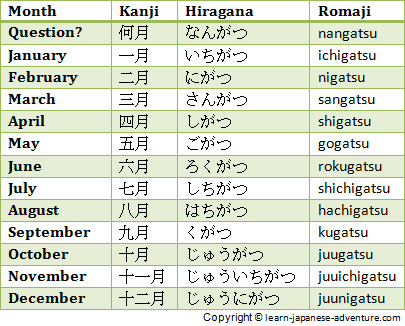
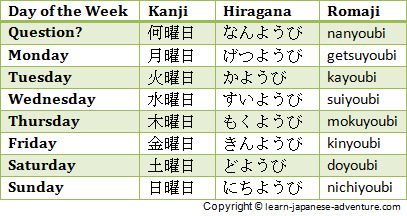
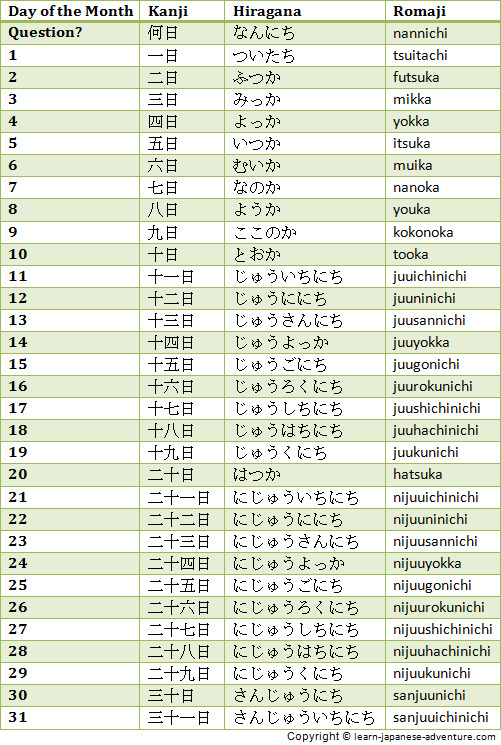
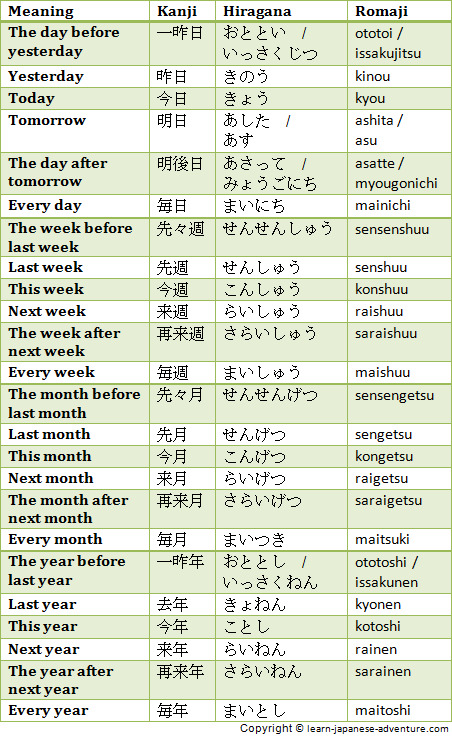
今日、私は曜日を勉強します。 kyo, watashi wa youbi o benkyoushimasu. Today I am studying Days of the week. yyyy/mm/dd
138 notes
·
View notes
Photo

Common Japanese Verbs Hey guys, below is a list of what I believe to be common Japanese verbs! I’ll also be posting a list of common adjectives, adverbs, and nouns in the future too, so keep an eye out for them! There are a number of ways that verbs have been categorised in Japanese, such as Ichidan 「一段」 and Godan 「五段」, and う verbs and る verbs. I’ve listed them all in the titles for easier understanding, depending on what distinction you’re familiar with. These classifications come in handy when you need to conjugate verbs so try to remember what category they belong to! うverbs・五段「ごだん」・Class 1: To begin (something starts on its own)・始まる・はじまる To buy・買う・かう To close・閉まる・しまる To die・死ぬ・しぬ To drink・飲む・のむ To eat・食べる・たべる To end・終わる・おわる To enter・入る・はいる To give back (return something to someone)・返す・かえす To go・行く・いく To go back・戻る・もどる To have/exist (inanimate objects)・ある To know・知る・しる To learn・習う・ならう To listen・聞く・きく To make・作る・つくる To meet・会う・あう To play・遊ぶ・あそぶ To receive・貰う・もらう To repair・直す・なおす To return・帰る・かえる To ride on・乗る・のる To run・走る・はしる To send・送る・おくる To sit・座る・すわる To speak・話す・はなす To swim・泳ぐ・およぐ To take・取る・とる To take off (shoes, clothes)・脱ぐ・ぬぐ To understand・分かる・わかる To use・使う・つかう To wait・待つ・まつ To wake up・起こす・おこす To wash・洗う・あらう To write・書く・かく るverbs・一段「いちだん」・Class 2: To answer・答える・こたえる To bathe・浴びる・あびる To be able・出来る・できる To be born・生まれる・うまれる To be enough・足りる・たりる To begin (to start something)・始める・はじめる To borrow・借りる・かりる To break・壊れる・こわれる To check・調べる・しらべる To cut・切れる・きれる To exceed・過ぎる・すぎる To find・見つける・みつける To forget・忘れる・わすれる To get off・降りる・おりる To get tired・疲れる・つかれる To give・あげる To go out・出る・でる To greet・迎える・むかえる To have/exist (animate objects)・いる To help・助ける・たすける To make a mistake・間違える・まちがえる To open・開ける・あける To remember・覚える・おぼえる To see・見える・みえる To show・見せる・みせる To sleep・寝る・ねる To stop・止める・やめる To teach・教える・おしえる To think・考える・かんがえる To wear・着る・きる Irregular verbs・Class 3: To come・来る・くる To do・する
する verbs: する verbs are made by adding する to a noun. To ask questions・質問する・しつもんする To be surprised・びっくりする To call・電話する・でんわする To do the cleaning・掃除する・そうじする To do the washing・ 洗濯する・せんたくする To get married・結婚する・けっこんする To go shopping・買い物する・かいものする To have a meal・食事する・しょくじする To reserve・予約する・よやくする To study・勉強する・べんきょうする To take a walk・散歩する・さんぽする To travel・旅行する・りょこうする
7K notes
·
View notes
